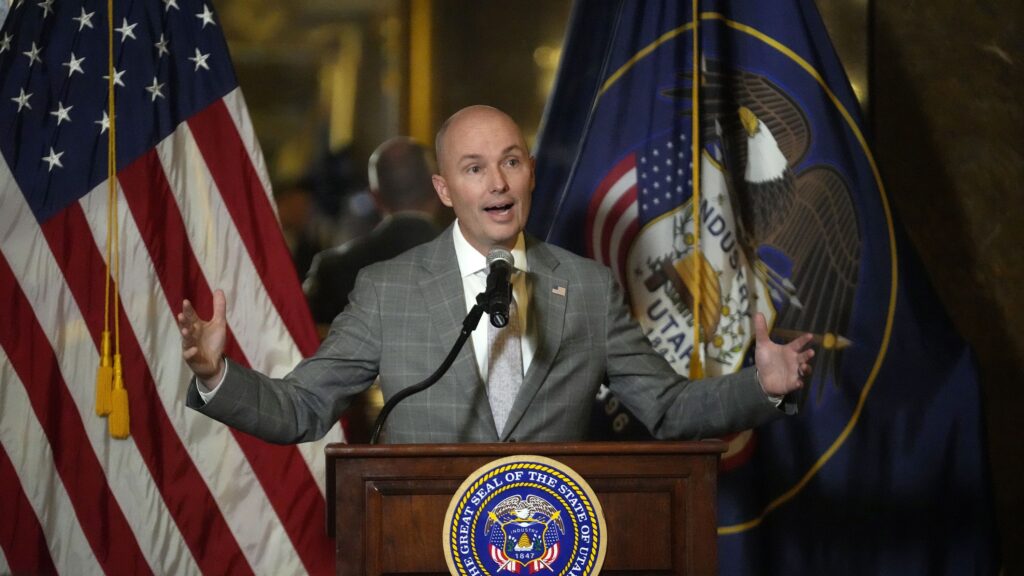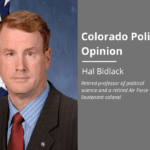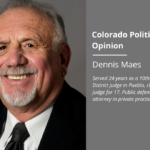Denver’s survival in the balance | SLOAN


The news of the shooting at East High School, to which Denver and the state awoke on Wednesday morning, was a particularly cruel punctuation on the issue of crime which is gripping the city. As such, it was also one which ought to have disqualified a number of the candidates for mayor right then and there.
Of course, that didn’t happen, and isn’t likely to, a fact which ought to generate a pause and a cold shiver as one contemplates the future of the city.
It is not readily clear why anyone would want the job of mayor of Denver, though plenty are in line to pursue it. The Denver mayoral race is a crowded one, and most close observers of the municipal political dynamic (I do not consider myself to be one) predict it will end up in a run-off. I have sworn off of making electoral predictions, but however it turns out the result will be a defining moment for Denver. It has become axiomatic that each and every election is the “most important ever,” and hearing that declared each and every election becomes grating. But there is no question this mayoral race is critical to the city. And if it goes wrong, it will be difficult to pull the city back from the precipice.
There are a lot of issues and problems which plague Denver; restrictive zoning rules, gestating taxes, traffic – this latter one being a problem most conspicuously due to lamentably poor planning and frustratingly erroneous decisions on the part of the city to take driving lanes away from more than 90% of road users on some of our busiest streets. These are problems which will need to be addressed, certainly. But by far the most crucial problem facing the city is crime.
The statistics are well known by now, no less alarming for their ubiquity. All manner of criminal activity is on the rise, both violent and property, much of it fueled by drugs. As much as the actual numbers, the anecdotal data are damaging; the word is out: downtown Denver is not safe. This is not terribly surprising, given that the city has been engaged in a rather successful effort to prevent the police from doing anything. This is a city, after all, that sent not one rioter to prison in the wake of the disorder and destruction that gripped the city in the summer of 2020, despite millions in damage and more than 100 police officers injured, but instead dedicated a great deal of time and resources to suing their own police department for – get this – using TOO MUCH force in an effort to put down the riots and save lives and property. You cannot make this up, as they say.
The next mayor does not need to explore a novel approach to fixing the crime problem. We know what works; the evidence is overwhelming. We know what worked to transform New York in the 1990s from the virtual hellscape it was in the 1970s and 1980s. Even Seattle, hardly a bastion of conservative attitudes towards law and order, has been forced to see the light. Seattle’s new city attorney, Ann Davison, has been fulfilling her law-and-order campaign promise since taking office in January 2022, and putting the city’s criminals in jail. The result? The average number of misdemeanor criminal incidents referred for prosecution by the largest group of recidivists has been cut in half.
The prevailing conventional wisdom is to spend our energies probing the proximate causes of crime, rather than treat the symptoms, as it were. And certainly we can and should continue to do this. But there isn’t, and never will be, a magic pill that will turn the Son of Sam into St. Francis of Assisi. Humans are flawed, and there is little, if anything we can do about that. But in the meantime there are concrete realities we face by failing to realistically confront the crime problem; from the business owner deprived use of his or her property, or the person whose sole means of transportation to school or work has been stolen, all the way to the broken jaw of a person assaulted at Union Station, the raped girl, the tortured elderly couple, the latest shooting victim.
The business of government is to establish and maintain order and enforce the laws of civil society. The assertion of that responsibility is on the line in the Denver mayoral election, and if Denver gets it wrong the tragic consequences will not stop at the city limits.
Kelly Sloan is a political and public affairs consultant and a recovering journalist based in Denver.













